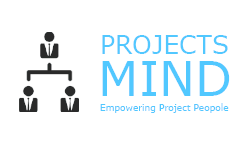Streamlining Project Timelines: Best Practices for Effective Project Management
Introduction
In the world of project management, ensuring that projects are completed within the specified timelines is crucial. Timelines serve as a roadmap, providing a clear path for project teams to follow and ensuring that all tasks are completed on time. However, managing project timelines can be challenging, with various factors that can cause delays and disruptions. This article will explore best practices for streamlining project timelines and achieving effective project management.
1. Define Clear Project Goals and Objectives
One of the first steps in streamlining project timelines is to clearly define project goals and objectives. By having a well-defined scope, project teams can better understand what needs to be accomplished and allocate the necessary resources and time accordingly. This clarity helps in setting realistic and achievable timelines, reducing the chances of delays.
2. Break Down Tasks and Set Milestones
Breaking down project tasks into smaller, manageable components is essential for effective project management. By dividing the project into smaller tasks, teams can assign responsibilities and track progress more efficiently. Additionally, setting milestones at key points in the project helps monitor progress and identify any potential bottlenecks early on.
3. Utilize Project Management Software
Project management software plays a vital role in streamlining project timelines. These tools offer features such as task assignment, progress tracking, and communication channels, facilitating collaboration and ensuring that everyone is on the same page. With real-time updates and notifications, project management software keeps teams informed about any changes or updates that may impact the project timeline.
4. Prioritize Tasks and Manage Dependencies
Prioritizing tasks is crucial to ensure that critical activities are completed on time. By identifying dependencies between tasks and managing them effectively, project managers can avoid delays caused by waiting for a task to be completed before starting another. Prioritization also helps in allocating resources efficiently and addressing any potential conflicts that may arise during the project.
5. Conduct Regular Progress Meetings
Regular progress meetings are essential for keeping the project on track. These meetings provide an opportunity to review the project’s progress, address any challenges or roadblocks, and make necessary adjustments to the timeline if required. These meetings also foster communication and collaboration among team members, ensuring that everyone has a clear understanding of their roles and responsibilities.
6. Proactive Risk Management
Identifying and managing project risks is vital for maintaining project timelines. By conducting a thorough risk assessment at the beginning of the project and continuously monitoring potential risks, project managers can develop proactive strategies to mitigate their impact on the timeline. This proactive approach helps in avoiding last-minute surprises and delays.
7. Regularly Update and Communicate the Timeline
The project timeline is not a static document; it should be regularly updated and communicated to all stakeholders. As the project progresses, adjustments may be required, and it is essential to keep everyone informed about any changes. By maintaining transparency and open communication, project teams can address any concerns or questions promptly, minimizing the chances of misunderstandings or delays.
FAQs
Q: How can project managers deal with unexpected delays?
A: Unexpected delays are inevitable in any project. To manage them effectively, project managers should assess the impact of the delay on the overall timeline, communicate the situation to stakeholders, and work with the team to develop a revised plan. Identifying alternative solutions and allocating additional resources if necessary can help in minimizing the impact of unexpected delays.
Q: What role does effective communication play in streamlining project timelines?
A: Effective communication is the backbone of successful project management. Clear and frequent communication ensures that all team members understand their tasks and deadlines. It helps in identifying potential issues early on, allowing for timely resolution. Additionally, open communication fosters collaboration and encourages team members to share updates and progress, keeping everyone aligned with the project timeline.
Q: How can project managers handle conflicts that may arise during the project?
A: Conflict management is a crucial skill for project managers. When conflicts arise, it is essential to address them promptly and objectively. Project managers should encourage open dialogue, actively listen to all parties involved, and work towards finding a mutually acceptable solution. By resolving conflicts efficiently, project managers can prevent delays and maintain a harmonious working environment.
Q: Can project management software help in tracking project timelines?
A: Yes, project management software is highly effective in tracking project timelines. These tools provide real-time updates, task tracking, and progress reports, allowing project managers to monitor the project’s status effortlessly. Additionally, project management software enables collaboration and communication among team members, ensuring that everyone is aware of their tasks and deadlines.
Q: What are some common causes of delays in project timelines?
A: Delays in project timelines can occur due to various reasons, including inadequate planning, poor communication, resource constraints, scope creep, and unexpected risks or issues. By identifying these common causes, project managers can proactively address them and implement strategies to minimize their impact on the project timeline.
Conclusion
Streamlining project timelines requires careful planning, effective communication, and proactive management. By following the best practices outlined in this article, project managers can enhance their ability to meet project deadlines, minimize delays, and deliver successful projects. By defining clear goals, breaking down tasks, utilizing project management software, and prioritizing tasks, project managers can ensure efficient project execution, ultimately leading to improved project outcomes.


Recent Comments